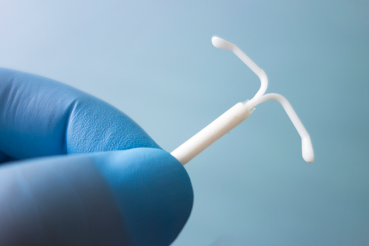Most of us learn about periods during puberty — and then it’s rarely talked about again. So it can be tough to know what’s normal.
While every person’s period is different, very heavy, very light or painful periods could signal something more serious.
“Periods aren’t necessarily the same for everyone,” says Lisa Boggio, MD, a hematologist at Rush. “But there are general guidelines that can help you decide if something’s off and when to seek help.”
So what’s considered a normal flow? And what should you watch for?
What is a normal period?
In general, a typical period involves about 30 milliliters of blood loss, or roughly two tablespoons, Boggio says. A helpful way to gauge whether your period is heavier than it should be is to follow the 7-2-1 rule.
“If your period lasts more than seven days, you’re changing a pad or tampon more than every two hours or you’re passing more than one quarter-sized blood clot per cycle,” Boggio says, “that’s considered heavy and abnormal.”
If you’re missing a period — especially for more than a month — or noticing very light periods, these can be signs of a problem, too
“The important thing is to pay attention to what feels different for you,” Boggio says. “And if your period bothers you, it’s always worth having that conversation with your doctor.”
The causes of abnormal periods
Your period can tell you a lot about your overall health. In fact, some doctors often see it as a vital sign like blood pressure, since certain health risks can affect your cycle — and irregular periods might even point to other problems.
Some of the most common causes of irregular periods are:
- Polycystic ovary syndrome. More commonly known as PCOS, this condition affects how the ovaries function and often causes irregular periods.
- Bleeding disorders. Conditions like von Willebrand disease affect about 1% of the population and can cause heavy periods after procedures. Other common blood disorders that affect periods include hemophilia and iron deficiency anemia.
- Age. It’s normal for periods to be irregular during puberty, even into your early 20s. They often get heavier and less predictable again before menopause.
- Family history. Certain menstrual and bleeding issues can run in families, so it’s helpful to know what your relatives have experienced.
- Stress. High stress can occasionally cause a missed period. “Every few years isn’t a big deal, but if it happens often, it’s worth checking out,” Boggio says.
Irregular periods can also be a sign of underlying health issues, such as:
- Fibroids, which are noncancerous uterine growths that can cause heavy periods, clots and bleeding between cycles and pelvic pain.
- Endometriosis, where uterine lining tissue grows outside the uterus, leading to chronic pelvic pain and heavy or abnormal bleeding.
- Thyroid issues, like Graves’ disease, which can affect hormone levels and disrupt your cycle.
- Diabetes and sickle cell anemia, which can also affect period patterns and bleeding.
Ways to get your period under control
There are plenty of ways to manage irregular periods.
“We can improve your period," Boggio says. "There’s no one-size-fits-all solution. It’s about finding the right option, or combination of options, that fit your needs.”
Treatments may include:
- Medications. Options like tranexamic acid (Lysteda) to reduce heavy bleeding, Provera and Lupron for PCOS, and hormone pills (oral contraceptives) to regulate cycles or reduce how often you have a period.
- Hormonal IUDs, like Mirena. IUDs are long-lasting, hormone-releasing devices placed in the uterus to reduce bleeding and regulate cycles.
- Surgery and procedures. This can include endometrial ablation, which removes the uterine lining to reduce or stop periods, and hysterectomy, a permanent option to stop bleeding, usually considered only after other treatments haven’t worked. Treating underlying issues like fibroids can also involve surgical or nonsurgical procedures, depending on your situation.
For more information, or to schedule an appointment, call (888) 352-7874 or visit us online.




